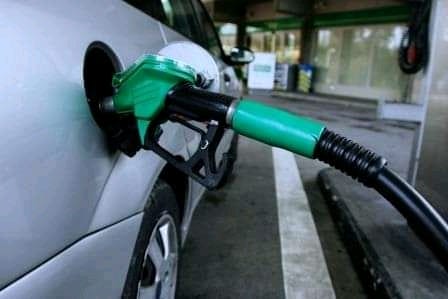There is a silent war on fuel going on in Malawi
The only way to resolve the matter is if the interests of the poor are prioritized, writes Onjezani Kenani.
There is a silent war on fuel going on. First, let us understand, in the simplest terms, how the oil sector works in Malawi.
The National Oil Company of Malawi (NOCMA), which is state-owned, imports the largest share of oil into Malawi (at 314 million metric tons per year). The next biggest importer is Petroleum Importers Limited (PIL), which imports more than 200 million metric tons. Then there are other independent importers, such as Mt Meru, Petroda etc, who import smaller amounts.
Let us focus on NOCMA, as it is the bone over which special interests within the ruling coalition are fighting.
Every year, NOCMA floats tenders for suppliers to supply oil into Malawi. The contracts are supposed to run from 1 June to 31 May. For this cycle, more than 20 suppliers submitted their tenders.
Fuel comes into Malawi from three ports. Under normal circumstances, NOCMA ought to order supplies as follows:
20 per cent of the national supply through Nacala;
30 per cent through Dar es Salaam; and
50 per cent through Beira.
These percentages were pre-determined due to a number of factors, most important of all being the cost of bringing the fuel from the port into Malawi. According to insiders, Nacala is the cheapest of them all; also because we could use trains of the Central East African Railways from Nacala to Malawi (an option that has been resisted because some of the biggest transporters are politicians, who would rather use their trucks, but that is a story for another day). And so, in reality, the supplies ordered are as follows:
1 per cent through Nacala;
49 per cent through Dar es Salaam; and
50 per cent through Beira.
When a tender is floated, each supplier is supposed to quote for each route and for each product. For example, supplier X will quote y kwacha for petrol and z kwacha for diesel on the Nacala route, m kwacha for petrol and n kwacha for diesel on the Beira route and so on.
Before I go further, let me explain that the global price of oil is not a secret. We all know it. But that price is at the point where the oil has been produced. From that point to Nacala or Beira or Dar es Salaam there is the cost of shipment. At Nacala or Beira or Dar es Salaam there is also the cost of storage. Then there is the cost of transporting the fuel from the port into Malawi. In addition, there is the cost of insurance. On top of all that, the supplier is in business, so he has to charge a premium to make profit.
When choosing suppliers, the one who charges the lowest premium – all other things being equal – is usually selected. This is because we consumers will eventually be the ones paying for everything. If you choose a supplier who charges a premium that is too high, we will, of course, pay.
And so when NOCMA assessed the bids, they ranked them from number 1 to 20 in accordance with their competitiveness, especially with regard to the premium. One would expect that the lowest bidder would be picked, but NOCMA, it turns out, picked No. 11 and No. 14, only two suppliers. Interestingly, one of the suppliers picked did not even bid for the Beira route, but will still be given the route to supply anyway, according to my sources.
The choices made by NOCMA, it is feared, could result in high pump prices, as the two suppliers will create a monopoly of sorts. This is why NOCMA has been having a tussle with the Malawi Energy Regulatory Authority (MERA). The latter wants NOCMA to add at least two more suppliers – any it can choose among those ranked from 1 to 10 – something that NOCMA disagrees with.
Then there is the issue of ex-tank and DDU (delivered duty unpaid). These are methods for supplying fuel in Malawi. Let me explain in simplest terms.
As already said, when fuel arrives at the port, there are the following costs incurred:
-storage at the port;
-cost of transport; and
-cost of insurance.
MERA, as a regulator, monitors all these, with the aim of protecting the consumer.
This monitoring is only possible when the fuel is delivered using the method of ex-tank.
DDU on the other hand means that the supplier, once awarded the tender by NOCMA, will be responsible for everything up to the pump. MERA will not know what storage costs at the port were, what the cost of transport was, and what the cost of insurance was. The consumer will end up paying for high costs without adequate protection from the regulatory authority.
And so this is where the battle lines are drawn. One faction in the Tonse Alliance is for ex-tank, the other one is for DDU. The suppliers whom NOCMA has selected are $54 million more expensive than the cheapest supplier who has been left out. The question is why?
All that will be paid for by the consumer.
And do you recall that eight months ago, the following were suspended from NOCMA?
-the Chief Executive;
-the Director of Finance; and
-the Director of Procurement.
No action has been taken to either reinstate them or to replace them.
For an entity of such strategic importance, why is this the case? How can such important procurement take place in the absence of such key personalities?
No wonder NOCMA is making losses. As we speak, it has a loss of K26 billion, and continues to hemorrhage cash. The only way to resolve the matter is if the interests of the poor are prioritized.
Let me stop there.



